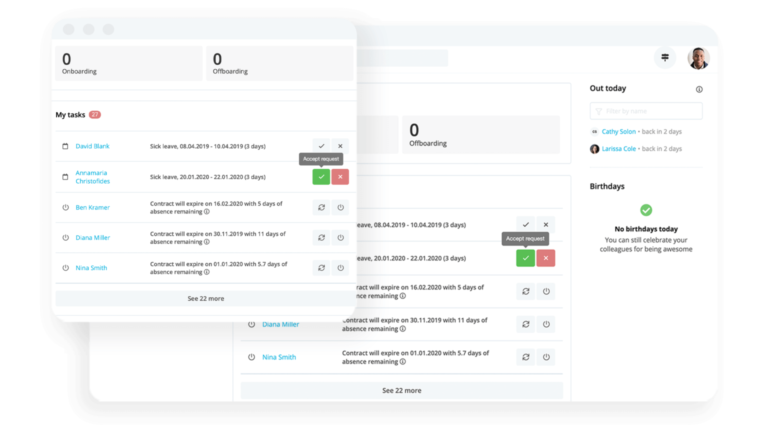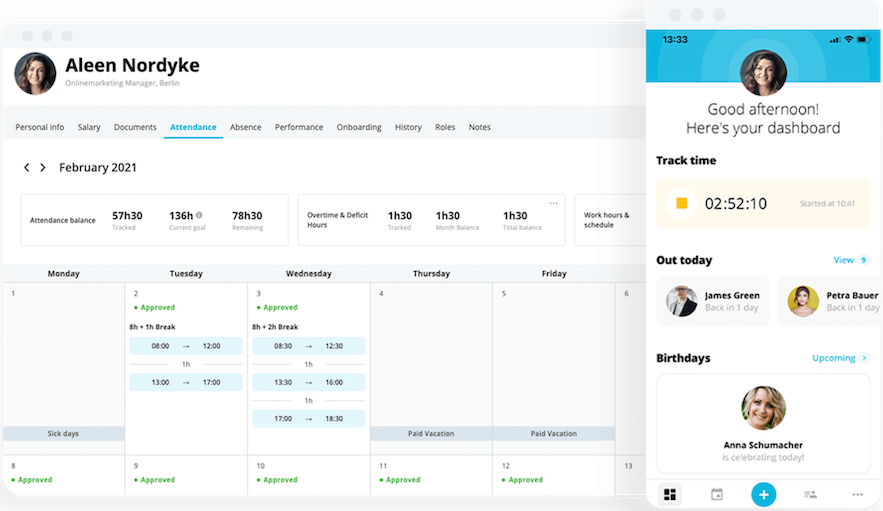
HR Business Plan Template
Unlock executive buy-in with our HR business plan template.
Get the templateHow is the four day week trial in the UK working?

Has the four-day week trial been a success in the UK? In this article, we are diving into the process and results of the UK’s four-day week trial was all about.
Key takeaways:
The UK four-day week trial took place for six months from June 2022 to November 2022, and involved around 70 companies and more than 3,300 employees.
The trial involved granting employees 100% pay for working 80% of their normal hours. Employees committed to delivering 100% productivity despite the shorter workweek.
The UK trial is just one of several pilot programs around the world to test the results of a four-day work week program.
What Is the Four-Day Working Week?
The four-day working week is a relatively new concept that some employers are beginning to offer employees. The four-day week can be organised in different ways, but the core principle is that employees only work for four days each week instead of five.
Depending on the structure of the organisation, employees might work from Monday to Thursday, Tuesday to Friday, or on a rotating schedule of four days that change each week.
Crucially, employees retain 100% of their salary, even though they only work approximately 80% of their previous hours. In exchange, employees commit to keeping productivity at 100%, despite working fewer hours.
This is known as the 100:80:100 model: 100% pay for 80% of the time, at 100% productivity.
What Are the Benefits of the Four-Day Week?
At first glance, giving your employees the same pay to work approximately 20% fewer hours might seem like a strange idea. But the four-day week has resulted in some interesting studied benefits — for both employees and employers.
Potential benefits of the four-day week for employees
Here are some of the reported benefits the four-day week:
Improved work-life balance: Working a four-day week potentially gives employees a much better work-life balance — leading to happier, healthier employees.
Saved costs on commuting and childcare: According to the non-profit 4 Day Week Global, a parent of two children in the UK could save an average of £3,232.40 per year by working one day fewer every week.
Lower stress and burnout: A study by Henley Business School from 2019 found that in companies with a four-day week policy, 78% of employees were happier, and 70% were less stressed.
Benefits of the four-day week for employers
Here are some of the benefits from the employer’s perspective:
Talent attraction and retention: When UK-based Atom Bank implemented a four-day week policy in 2021, the number of applications the company received increased by 500%. And for Wonderlust Group, an outdoor tech company, the effects were even more notable: applications went up 800%, and the company’s retention rate shot up to 98%.
Increased efficiency and productivity: A key part of the four-day week is that employees commit to keeping productivity at 100%, even though they’re working fewer hours. And surprisingly, this does seem to work: 64% of the businesses surveyed in the Henley Business School study mentioned above say that a four-day week has led to improved productivity. This effect is borne out by a trial by Microsoft Japan in 2019, which found productivity climbed by 40% once a four-day week was implemented.
Better engagement and decreased absenteeism: Employees that have more energy tend to be more engaged in their work — which is another huge advantage of the four-day week. And the same 2019 study quoted above found that a four-day week resulted in a 62% decrease in sick days taken by employees. Given the high cost that unplanned absences can represent for a business, this is a significant benefit.
15,000 organisations trust Personio for this reason

Just like LUSH and Premier Inn, trust Personio's all-in-one HRIS to upgrade your people operations for now and into the future. Click below to learn more about us.
Book Your DemoWhat Is the UK Four-Day Week Trial?
The UK four-day workweek pilot was a scheme that began in June 2022 and ran through to November 2022. More than 70 UK companies signed up for the trial, including a local fish and chip shop, a software development company and an asset management firm.
The pilot was organised by 4 Day Week Global, an international non-profit organisation created to promote the idea of the four-day workweek as part of the future of work. The 4-Day Week UK campaign, the UK think tank Autonomy, and researchers from Cambridge University, Boston College and Oxford University were also involved.
How Did the Four-Day Working Week Pilot Work?
Companies that signed up for the pilot agreed to radically change working patterns in their organisations by continuing to pay their employees 100% of their salaries while cutting their working hours by 20%. In exchange, employees committed to maintaining 100% productivity.
These organisations were provided with resources and support to help them successfully manage their transition to a four-day workweek. This included:
Workshops: These were provided by 4 Day Week Global, Autonomy and other organisations that have already successfully implemented a four-day week. They included online webinars and resources that dealt with common challenges and pitfalls.
Mentoring: 4 Day Week Global and Autonomy also organised mentoring by matching participating organisations with mentors from their network of accredited four-day week organisations. Again, this gave the organisations the help they needed to overcome common obstacles.
Networking: The trial included opportunities for networking with other participants, allowing the organisations involved to act as a peer-to-peer support network where members could share their experiences.
Wellbeing and productivity assessment: The trial also included close monitoring of well-being, productivity and success within each organisation. Since the entire point of implementing a four-day week is to improve well-being without impacting productivity, this was a crucial part of the pilot programme.
What Was the Timeline For This Project?
The UK pilot began in June 2022 and ended after six months in November 2022.
The Four-Day Week In Other Countries
Similar trials of the four-day week are currently taking place in Ireland, the US, Canada, Australia and New Zealand. 4 Day Week Global plan to continue launching new trials in different regions each quarter.
Previous trials have already been concluded in several countries including Iceland, where a scheme that involved about 1% of the country’s workforce was found to be a success. And many individual organisations have also carried out their own trials or introduced the four-day week temporarily to monitor its effects.
Will the Four-Day Week Trial Become Permanent in the UK?
At the halfway point of the trial, 41 out of the 73 firms participating in the pilot responded to a survey. Of those, 86% said that they would keep the policy after the trial ends. While this isn’t a definitive answer, it’s a good indication that many companies who have tried out the four-day week have found it to be successful for them.
That said, the permanence of any four-day workweek needs to be aligned to a company's unique culture, expectations and whether or not it works for their business model. A four-day workweek is also only one benefit of a wider universe of benefits, ranging from transport subsidies to culture more generally.
And other countries where four-day week trials have already been carried out can also provide a clue as to the future of the initiative in the UK. In Iceland, for example, the four-day week trial that took place between 2015 and 2019 had a significant effect on the workplace: almost 90% of the working population have received either reduced hours or other accommodations since 2019.
The Four-Day Week and the Future of Work
The four-day week is an interesting concept that’s now been tried in many countries around the world. The UK trial is just the latest in a series of programmes that seem to show the connection between four days and worker productivity.
Although not every company will see the benefits of these policies, the four-day week will likely play a large role in shaping how we discuss the future of work.
That said, every organisation is different. To date, the four-day workweek program's sample is likely too small, relative to the world's workforce, and has not gone on long enough to evidence any of the more wide-ranging outcomes.
